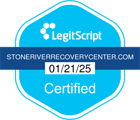In the fast-paced and frequently stressful modern world, many individuals are faced with mental health challenges. Regrettably, some resort to using drugs or alcohol as a means of self-medication to deal with stress or underlying mental health concerns.
Societal expectations, work or academic pressures, and the daily demands of life can all contribute to an individual’s desire to self-medicate. One of the primary reasons is an attempt to alleviate mental health issues, such as anxiety or depression, or to escape past trauma. Drugs or alcohol may provide a temporary escape from overwhelming emotions or stress, with individuals seeking solace in the altered state of consciousness that substances can create.
Signs That Someone Is Self-Medicating
It can often be difficult to know whether someone is self-medicating since the signs may vary depending on the individual and the substances involved. However, common indicators can suggest a loved one is using drugs or alcohol as a form of self-medication:
- Changes in behavior. Abrupt and unexplained shifts in behavior, such as heightened irritability, withdrawal from social engagements, or a deterioration in work or school performance, could indicate an underlying problem.
- Mood swings. Fluctuations in mood, from extreme highs to deep lows, can indicate that substances are being used to regulate emotions.
- Physical changes. Noticeable physical changes, such as weight loss, changes in hygiene, or bloodshot eyes, may be signs of substance abuse.
- Isolation. Isolating oneself from friends and family, coupled with a reluctance to discuss personal matters, could be a red flag of self-medication with substances.
- Loss of interest. A sudden loss of interest in hobbies or activities that were once enjoyed may suggest a shift in priorities due to substance use.
- Financial issues. Struggling with financial problems, borrowing money frequently, or unexplained expenses may be linked to the cost of maintaining a substance habit.
What to Do If Someone is Self-Medicating
Recognizing that someone is self-medicating is the first step toward helping them overcome their addiction. Here are several approaches that can be effective in supporting individuals on the path to recovery:
- Open communication. Encouraging open and non-judgmental communication is crucial. Expressing concern and offering a listening ear can create a safe space for the individual to share their struggles.
- Professional help. Seeking the assistance of mental health professionals, such as therapists or counselors, is essential. These professionals can help address underlying issues and provide coping mechanisms that do not involve substance abuse.
- Support groups. Joining support groups or 12-step programs can offer a sense of community and shared experience. Connecting with others who have dealt with similar challenges can be a powerful motivator for change.
- Inpatient rehabilitation. In cases of severe addiction, inpatient rehabilitation programs provide a structured and supportive environment for individuals to detoxify and learn essential skills for maintaining sobriety.
- Outpatient treatment. For those who do not require round-the-clock care, outpatient treatment is an option to consider. Outpatient programs provide counseling, therapy, and support while allowing participants to maintain their daily responsibilities.
- Medication-assisted treatment. Medication can be prescribed along with counseling and behavioral therapies to address substance use disorders effectively. Some medications can help reduce cravings and withdrawal symptoms when detoxing from a substance.
- Holistic approaches. Holistic approaches, such as yoga, meditation, and art therapy, can complement traditional methods by addressing the physical, emotional, and spiritual aspects of addiction.
- Family involvement. Including family members in the recovery process can provide crucial support. Family therapy sessions can help mend relationships damaged by addiction and create a strong support system for the individual in recovery.
Self-medicating with drugs or alcohol is a coping mechanism that, while providing temporary relief, often leads to a vicious cycle of dependence. Recognizing the signs of self-medication and offering support is vital in helping individuals break free from this destructive pattern. If you or a loved one is self-medicating and need help, we are here to support you. At Stone River Recovery Center in San Antonio, Texas, we offer a variety of services, such as detox and residential treatment. To learn more about how we can help you, please contact us today.








